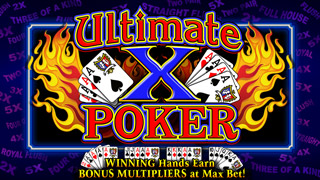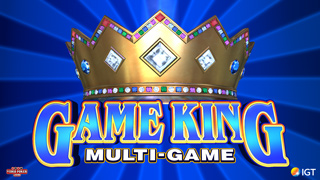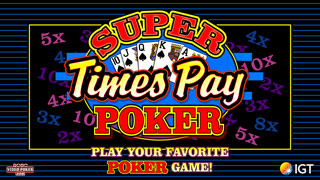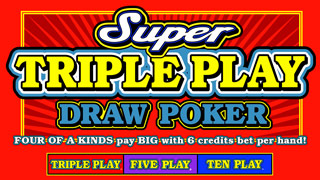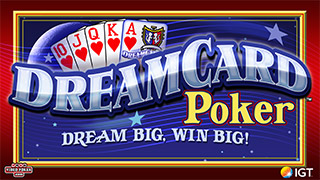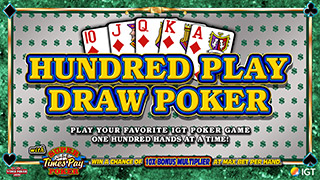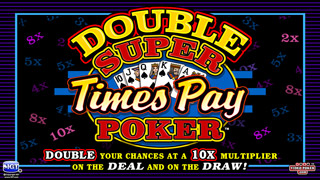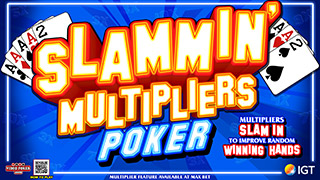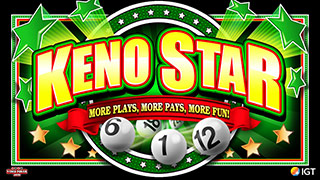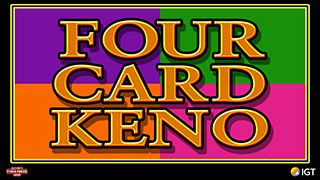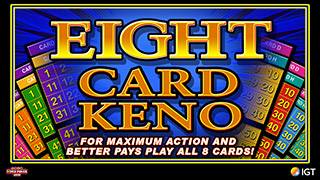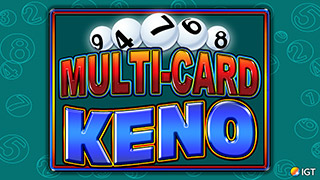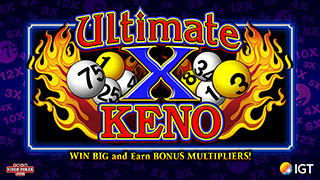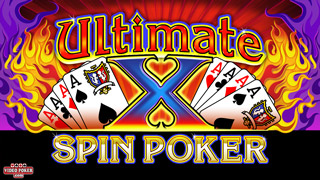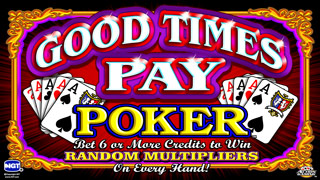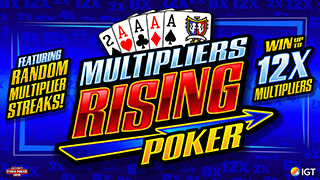Definition of Winning
-
Frank Kneeland
- VP Veteran
- Posts: 762
- Joined Forum: February 2, 2011
- View Player Page
Definition of Winning
Definition of WinningI'd like to open
with a story: I first became aware of this odd mental confabulation
when I was in charge of training new photographic printers at the MGM
for Cashman Photo, shortly after the casino opened. The lab manger,
Peter, a cockney from Britain, proudly exclaimed that he had “won”
$200 down pub the previous night. At the end of our shift, I inquired
if he'd like to grab a pint tonight and after searching though his
wallet, informed me that he didn't feel he had enough funds. I
queried him as to what had happened to his “winnings” from last
night, and he abashedly admitted that he must have lost $400 or $500
winning the $200 and couldn't afford another trip this week.
This was my first
exposure to this particular definition of winning, “hitting a
jackpot regardless of cost”. It would not be the last. Since then I
have read many books on pathological gambling which more or less
unanimously agree that this is a risk factor for problem gambling.
Poor Peter did indeed go on to have major gambling issues, and
eventually went back across the pond penniless.
After writing this
post, I passed it on to a practicing psychologist that specializes in
addiction treatment to make sure I had not overstated the medical
communities current thinking. Though it is in my writing style it is
less my opinion and far more a paraphrase of what I've read on the
subject in the most modern literature. The intent is to let you know
how clinicians and research scientists perceive this issue.
Please note that cognitive
distortions are not by themselves considered insanities. They are
considered components in the formation and maintenance of certain
psychiatric conditions. It is possible to have mild to moderate
cognitive distortion without qualifying as “crazy”. The
classification of Severe cognitive distortion is reserved for things
that would qualify you for treatment. Most of what I'm discussing
here is considered “mild” by itself, if no other factors are
present.
Why Gamblers Redefine “Winning”.
I think it might be useful to start out
by stating the dictionary definition of 'winning' which is the one I
use.
Noun: Money won, esp. by gambling
Adjective: Gaining,
resulting in, or relating to victory in a contest or competition
I looked up 'winning' in several dictionaries. In none of them
did I find any reference to a time limit or statute of limitations on
previous results. If we stick to the dictionary definition, you must
be ahead overall to claim winning. It's fairly clear that some/most
people don't use the word correctly and claim small temporary refunds
of their lifetime losses as 'winning', or even losing money to hit a
jackpot as in our opening story. They use 'winning' to denote a loss
reduction. If this were a mere error in nomenclature, one could
almost forgive it. The problem is that not only do people use the
word incorrectly, (here I'm using “incorrectly” only to mean
“departure from dictionary definition”) they perceive it
incorrectly as well, with potentially dire results.
Don't obsess on the words usage. Even if we accept that the
dictionary definition is wrong, because it does not account for
colloquial use, it is the meaning behind the word that is the issue.
If you handed me $2,000 and I handed you back $1,000, you would not
immediately turn to a friend and proudly exclaim a $1,000 win.
Neither would you claim a win if the same transaction occurred over
days or weeks. The reason the loss (not win) here is clear is we
don't declare the transaction terminated until it has been completed.
In gambling, such as video poker, we add imaginary lines of
demarcation that give the illusion of completion, even though the
transaction is ongoing. Casinos take deliberate advantage of this
weakness, which is why almost every machine now has a nice little
window that tells you how much you have 'won' irrespective of your
coin in.
It's the new math: -100 coins + 35 coins = a 35 coin 'win'This particular cognitive distortion, where gamblers redefine
a reduction of losses as 'winning', has been found to be one of the
greatest risk factors in the development of gambling problems,
present in nearly 100% of all pathological gamblers screened. Its
prevalence is unclear in the general populace. People with the severe
form of this distortion will discount all their losses and claim any
jackpot hit as a win. If they change machines during play, only the
ones with positive results will be remembered, and even if they are
down thousands of dollars during a single trip to the casino overall
their minds will record having 'won'. A key ingredient here may be
reduced reactivity to negative stimuli and over-stimulation to
reward. (Side Note: This trait has been frequently found in criminal
behavior, where felons risked years of incarceration for trivial
rewards. Current research is pointing to a strong genetic component
~recent issue of Science).Let's be clear on this: If
you told a psychologist that you were winning a thousand dollars this
week, and they followed up your statement by asking you your lifetime
results, and you then answered that you were behind overall, they
would write this down on your chart and possibly send you for a full
psych evaluation. This doesn't rise to the level of insanity, but it
is considered a serious risk factor for pathological gambling and is
a sign of cognitive distortion (mild, if no other factors are
present). If you have this particular issue, it will likely not be
possible for you to understand the concept. You'll have to settle for
understanding that it is considered a problem by the medical
community. They would not care why you gamble, they'd mark your chart
and move on.This distortion appears to be mostly confined to
gambling involving independent random events which occur over time,
if they do not inherently provide the person experiencing them a
method to accurately evaluate their total results at a glance. For
instance, in the stock market the distortion largely disappears. I
have never personally heard a trader claim a sale, regardless of the
size, as a win, if they sold the stock for less than they bought it
for. Certainly, they might end the day with $100,000 more in cash
than they started with after a sale, but if the stock cost them
$100,001, they do not claim it as 'winning'. Stock Traders don't even
tend to claim winning in the market at all, unless they are ahead
overall for their life. Of course a quick glance at their portfolios
is all that is required to snap them back to reality, even if they
wanted to experience this particular distortion. The stock market is
a form of gambling; the difference is that it is one with built in
forced record keeping.People that hock or sell their jewelry
do not claim the infusion of money as 'winning' unless they get more
for it than they bought it for. A reclaiming of monies previously
spent or lost, is never seen as winning, except in casinos. No
football team would claim to be winning after a touchdown if they
were still behind in total score. In almost all other walks of life,
except for gambling, to be winning, one must actually be winning
(ahead), and this is usually irrespective of time frame. Even if a
stock trader had held onto stock for 50 years, they would not claim a
win if they sold it for less, half a century later. Reference to
results over arbitrary time spans (such as “today”), that
discount the past, only seem to rear their ugly head in gambling.
One cognitive distortion that appears to effect both casino goers
and stock traders alike is illusory control: The
overestimation of the effect that one's voluntary actions have over
random events. This leads to causation errors where one believes
something they did, rather than random chance, influenced the
outcome. It is a highly self-reinforcing belief as it is never
possible to go back in time and test the road not taken. It's too
broad a subject to cover here. I recommend a book called The
Drunkard's Walk.
By this point, for those readers who have any cognitive
distortion, their justification engines are in full swing and the
“but I only gamble for fun” argument is ringing in their heads.
It should be obvious to all but the most distorted that whether you
gamble for fun or professionally, this only effects your motivation
and intent. The thoughts in your head do not have the power to alter
the physical reality of what happens to you in a casino. Your
thoughts and intent do have the power to alter your perception of
that reality, which is why recreational gamblers can experience
results identical to the results of a professional gambler but
mentally record them differently. It is a completely subconscious
process, and no one who does it is aware that they are doing it. In
fact, if one becomes aware of it, the distortion mostly disappears.
Here is the process:If one gambles for “fun” their brains
overemphasize momentary upswings in random fluctuations, dismiss or
discard negative trends, and parse continuous results into disparate
segments that allow the mind to classify parts of a downward slope as
“winning”. Cognitive dissonance (unwillingness of the human mind
to admit fault) drives this happy spin process, and the more negative
the experience, the more committed the human mind becomes to “enjoy”
it, creating fabricated justifications left and right to convince
itself it is having “fun”. It is not clear yet how much of the
“fun” of gambling comes from this cycle: negative experience >
denial > justification. It is only clear that it is a major
component in why people derive enjoyment from the activity. Another
reinforcing component is the random variable reward schedule, which
has been found to be the best at ingraining animal and human behavior
alike. Except here the “reward” isn't even really a net positive
reward. Imagine Pavlov's experiments if the animals had to gamble
what food they already had to get more, with eventual starvation as
the result. Because the time span is expanded, the effect becomes
almost imperceptible. A net negative penalty is seen as a positive
reward because of the slow variable reward schedule.No one
can argue that gamblers don't have “fun”. The issue is the source
of that fun. If winning is fun, then their brains become highly
motivated to morph anything, even a loss reduction, into “winning”.
The result is distorted thinking > motivational conditioning.I
have said pretty much all I can on this subject, so if you still
don't understand the issue, I recommend reading any modern book on
gambling addiction. They all have references to this topic, and
naturally state it better than I can in a brief web-post.
My favorite book on gambling to date is: Best Possible Odds
by Dr. William McCown and Dr. Linda L. Chamberlain (Note: it is
written for doctors at the graduate level) Dr. McCown's latest book
Treating Gambling Problems is less informative, but more
accessible to the layman.
Since I'm reasonably sure no one would like to think that they are
being manipulated by casinos, try this: Keep accurate lifetime
records. If you are down money in casinos overall for your life, the
next time you hit a jackpot rather than declare it as a win exclaim
instead:
“I'm now losing $xxx less than I was, and I'm only down
$x,xxx,xxx dollars overall.”
If this in no way reduces your enjoyment of the experience, you
can rest assured that your “fun” is not the result of this
particular cognitive distortion and the casino's intentional
manipulations. If an activity is really worthwhile, clear thought
should not be able to ruin the fun in it.Sincerely,~Frank Kneeland
with a story: I first became aware of this odd mental confabulation
when I was in charge of training new photographic printers at the MGM
for Cashman Photo, shortly after the casino opened. The lab manger,
Peter, a cockney from Britain, proudly exclaimed that he had “won”
$200 down pub the previous night. At the end of our shift, I inquired
if he'd like to grab a pint tonight and after searching though his
wallet, informed me that he didn't feel he had enough funds. I
queried him as to what had happened to his “winnings” from last
night, and he abashedly admitted that he must have lost $400 or $500
winning the $200 and couldn't afford another trip this week.
This was my first
exposure to this particular definition of winning, “hitting a
jackpot regardless of cost”. It would not be the last. Since then I
have read many books on pathological gambling which more or less
unanimously agree that this is a risk factor for problem gambling.
Poor Peter did indeed go on to have major gambling issues, and
eventually went back across the pond penniless.
After writing this
post, I passed it on to a practicing psychologist that specializes in
addiction treatment to make sure I had not overstated the medical
communities current thinking. Though it is in my writing style it is
less my opinion and far more a paraphrase of what I've read on the
subject in the most modern literature. The intent is to let you know
how clinicians and research scientists perceive this issue.
Please note that cognitive
distortions are not by themselves considered insanities. They are
considered components in the formation and maintenance of certain
psychiatric conditions. It is possible to have mild to moderate
cognitive distortion without qualifying as “crazy”. The
classification of Severe cognitive distortion is reserved for things
that would qualify you for treatment. Most of what I'm discussing
here is considered “mild” by itself, if no other factors are
present.
Why Gamblers Redefine “Winning”.
I think it might be useful to start out
by stating the dictionary definition of 'winning' which is the one I
use.
Noun: Money won, esp. by gambling
Adjective: Gaining,
resulting in, or relating to victory in a contest or competition
I looked up 'winning' in several dictionaries. In none of them
did I find any reference to a time limit or statute of limitations on
previous results. If we stick to the dictionary definition, you must
be ahead overall to claim winning. It's fairly clear that some/most
people don't use the word correctly and claim small temporary refunds
of their lifetime losses as 'winning', or even losing money to hit a
jackpot as in our opening story. They use 'winning' to denote a loss
reduction. If this were a mere error in nomenclature, one could
almost forgive it. The problem is that not only do people use the
word incorrectly, (here I'm using “incorrectly” only to mean
“departure from dictionary definition”) they perceive it
incorrectly as well, with potentially dire results.
Don't obsess on the words usage. Even if we accept that the
dictionary definition is wrong, because it does not account for
colloquial use, it is the meaning behind the word that is the issue.
If you handed me $2,000 and I handed you back $1,000, you would not
immediately turn to a friend and proudly exclaim a $1,000 win.
Neither would you claim a win if the same transaction occurred over
days or weeks. The reason the loss (not win) here is clear is we
don't declare the transaction terminated until it has been completed.
In gambling, such as video poker, we add imaginary lines of
demarcation that give the illusion of completion, even though the
transaction is ongoing. Casinos take deliberate advantage of this
weakness, which is why almost every machine now has a nice little
window that tells you how much you have 'won' irrespective of your
coin in.
It's the new math: -100 coins + 35 coins = a 35 coin 'win'This particular cognitive distortion, where gamblers redefine
a reduction of losses as 'winning', has been found to be one of the
greatest risk factors in the development of gambling problems,
present in nearly 100% of all pathological gamblers screened. Its
prevalence is unclear in the general populace. People with the severe
form of this distortion will discount all their losses and claim any
jackpot hit as a win. If they change machines during play, only the
ones with positive results will be remembered, and even if they are
down thousands of dollars during a single trip to the casino overall
their minds will record having 'won'. A key ingredient here may be
reduced reactivity to negative stimuli and over-stimulation to
reward. (Side Note: This trait has been frequently found in criminal
behavior, where felons risked years of incarceration for trivial
rewards. Current research is pointing to a strong genetic component
~recent issue of Science).Let's be clear on this: If
you told a psychologist that you were winning a thousand dollars this
week, and they followed up your statement by asking you your lifetime
results, and you then answered that you were behind overall, they
would write this down on your chart and possibly send you for a full
psych evaluation. This doesn't rise to the level of insanity, but it
is considered a serious risk factor for pathological gambling and is
a sign of cognitive distortion (mild, if no other factors are
present). If you have this particular issue, it will likely not be
possible for you to understand the concept. You'll have to settle for
understanding that it is considered a problem by the medical
community. They would not care why you gamble, they'd mark your chart
and move on.This distortion appears to be mostly confined to
gambling involving independent random events which occur over time,
if they do not inherently provide the person experiencing them a
method to accurately evaluate their total results at a glance. For
instance, in the stock market the distortion largely disappears. I
have never personally heard a trader claim a sale, regardless of the
size, as a win, if they sold the stock for less than they bought it
for. Certainly, they might end the day with $100,000 more in cash
than they started with after a sale, but if the stock cost them
$100,001, they do not claim it as 'winning'. Stock Traders don't even
tend to claim winning in the market at all, unless they are ahead
overall for their life. Of course a quick glance at their portfolios
is all that is required to snap them back to reality, even if they
wanted to experience this particular distortion. The stock market is
a form of gambling; the difference is that it is one with built in
forced record keeping.People that hock or sell their jewelry
do not claim the infusion of money as 'winning' unless they get more
for it than they bought it for. A reclaiming of monies previously
spent or lost, is never seen as winning, except in casinos. No
football team would claim to be winning after a touchdown if they
were still behind in total score. In almost all other walks of life,
except for gambling, to be winning, one must actually be winning
(ahead), and this is usually irrespective of time frame. Even if a
stock trader had held onto stock for 50 years, they would not claim a
win if they sold it for less, half a century later. Reference to
results over arbitrary time spans (such as “today”), that
discount the past, only seem to rear their ugly head in gambling.
One cognitive distortion that appears to effect both casino goers
and stock traders alike is illusory control: The
overestimation of the effect that one's voluntary actions have over
random events. This leads to causation errors where one believes
something they did, rather than random chance, influenced the
outcome. It is a highly self-reinforcing belief as it is never
possible to go back in time and test the road not taken. It's too
broad a subject to cover here. I recommend a book called The
Drunkard's Walk.
By this point, for those readers who have any cognitive
distortion, their justification engines are in full swing and the
“but I only gamble for fun” argument is ringing in their heads.
It should be obvious to all but the most distorted that whether you
gamble for fun or professionally, this only effects your motivation
and intent. The thoughts in your head do not have the power to alter
the physical reality of what happens to you in a casino. Your
thoughts and intent do have the power to alter your perception of
that reality, which is why recreational gamblers can experience
results identical to the results of a professional gambler but
mentally record them differently. It is a completely subconscious
process, and no one who does it is aware that they are doing it. In
fact, if one becomes aware of it, the distortion mostly disappears.
Here is the process:If one gambles for “fun” their brains
overemphasize momentary upswings in random fluctuations, dismiss or
discard negative trends, and parse continuous results into disparate
segments that allow the mind to classify parts of a downward slope as
“winning”. Cognitive dissonance (unwillingness of the human mind
to admit fault) drives this happy spin process, and the more negative
the experience, the more committed the human mind becomes to “enjoy”
it, creating fabricated justifications left and right to convince
itself it is having “fun”. It is not clear yet how much of the
“fun” of gambling comes from this cycle: negative experience >
denial > justification. It is only clear that it is a major
component in why people derive enjoyment from the activity. Another
reinforcing component is the random variable reward schedule, which
has been found to be the best at ingraining animal and human behavior
alike. Except here the “reward” isn't even really a net positive
reward. Imagine Pavlov's experiments if the animals had to gamble
what food they already had to get more, with eventual starvation as
the result. Because the time span is expanded, the effect becomes
almost imperceptible. A net negative penalty is seen as a positive
reward because of the slow variable reward schedule.No one
can argue that gamblers don't have “fun”. The issue is the source
of that fun. If winning is fun, then their brains become highly
motivated to morph anything, even a loss reduction, into “winning”.
The result is distorted thinking > motivational conditioning.I
have said pretty much all I can on this subject, so if you still
don't understand the issue, I recommend reading any modern book on
gambling addiction. They all have references to this topic, and
naturally state it better than I can in a brief web-post.
My favorite book on gambling to date is: Best Possible Odds
by Dr. William McCown and Dr. Linda L. Chamberlain (Note: it is
written for doctors at the graduate level) Dr. McCown's latest book
Treating Gambling Problems is less informative, but more
accessible to the layman.
Since I'm reasonably sure no one would like to think that they are
being manipulated by casinos, try this: Keep accurate lifetime
records. If you are down money in casinos overall for your life, the
next time you hit a jackpot rather than declare it as a win exclaim
instead:
“I'm now losing $xxx less than I was, and I'm only down
$x,xxx,xxx dollars overall.”
If this in no way reduces your enjoyment of the experience, you
can rest assured that your “fun” is not the result of this
particular cognitive distortion and the casino's intentional
manipulations. If an activity is really worthwhile, clear thought
should not be able to ruin the fun in it.Sincerely,~Frank Kneeland
-
mightwin
- Senior Member
- Posts: 195
- Joined Forum: December 1, 2008
- View Player Page
So I guess Charlie Sheen wasn't "winning" either....
-
jm002546
- Senior Member
- Posts: 398
- Joined Forum: October 2, 2007
- View Player Page
When I go to Vegas I intentionally avoid knowing how much money I bring. I have only run out of money the first time I went and was drinking heavily. But I know in general how I fared. Can anyone out-stupid that?
-
Frank Kneeland
- VP Veteran
- Posts: 762
- Joined Forum: February 2, 2011
- View Player Page
When I go to Vegas I intentionally avoid knowing how much money I bring. I have only run out of money the first time I went and was drinking heavily. But I know in general how I fared. Can anyone out-stupid that?
Easily, as long as I'm allowed to include my love life.
-
Frank Kneeland
- VP Veteran
- Posts: 762
- Joined Forum: February 2, 2011
- View Player Page
I know I said it in the post itself, but things get overlooked in long posts.Before I posted "Definition of Winning" it was passed on to a practicing clinical psychologist for review and correction. It is a paraphrase of information from several books I have read on pathological gambling and cognitive bias.I added some humor, other than that nothing I said should be considered original or my ideas. Mostly I'd like to credit Amos Tversky and Daniel Kahneman, and of course my several times radio guest, Dr. William G. McCown. Here's a link to his most recent book:http://thepsychologytimes.com/2011/06/1 ... disorders/
-
New2vp
- Video Poker Master
- Posts: 1887
- Joined Forum: September 11, 2006
- View Player Page
So I guess Charlie Sheen wasn't "winning" either....Good one!
-
jim18
- Senior Member
- Posts: 118
- Joined Forum: March 4, 2011
- View Player Page
The original post on this topic is an eye opener for me. I am guilty of writing posts that are full of too much detail, or that touch on too many topics, so that readers of my posts tend to not respond, as I am not focused enough, and I am not brief in my explanation.Since I am not knowledgeable about what gambling addicts have to say about gambling and winning, I will not confront any comments on that front. However, are you, or I a gambling addict?If not, then how much of the original post applies to you or to me? And, if any part of a discussion about addicts matches your thinking, does that mean you have addictive tenancies. Or is that a product of randomness?At this point in time, I am not ready to turn over to experts or doctors what the definition of winning should be. I would like to leave it up to the individual to define winning as it pleases such people.Using just my own idea of winning as a foundation, I will say that considering the long term, I am not now, nor have I ever been a winner. And for the purpose of this topic, I will define winning as making a profit from gambling.However, I see no logic to going to a casino and saying that if I win $XXX on a certain machine that I am not a winner. But, I realize that I am only a winner as it relates to my play on that machine, for today.If you or I were to go to the casino, armed with the knowledge that over the years we have lost $XXXXXX, what then would be our state of mind? Would we play for fun, using nickels, or quarters? Or would we say that if I ever want to be a winner (at the lifetime level), then I must play at a level where I have the chance of winning $XXXXXX. Maybe not in one session, but over the rest of my playing sessions.In my non-professional opinion I have to go into the casino with an optimistic view of what will happen today. And what has happened in the past is irrelevant to how I play today. And today, if I want to play for fun, I will do so. Or today, if I want to play to win then I will do so. It should be my choice. Not a collar placed on me by doctors who have studied addicts and their behavior.
-
Frank Kneeland
- VP Veteran
- Posts: 762
- Joined Forum: February 2, 2011
- View Player Page
The original post on this topic is an eye opener for me. I am guilty of writing posts that are full of too much detail, or that touch on too many topics, so that readers of my posts tend to not respond, as I am not focused enough, and I am not brief in my explanation.Since I am not knowledgeable about what gambling addicts have to say about gambling and winning, I will not confront any comments on that front. However, are you, or I a gambling addict?If not, then how much of the original post applies to you or to me? And, if any part of a discussion about addicts matches your thinking, does that mean you have addictive tenancies. Or is that a product of randomness?At this point in time, I am not ready to turn over to experts or doctors what the definition of winning should be. I would like to leave it up to the individual to define winning as it pleases such people.Using just my own idea of winning as a foundation, I will say that considering the long term, I am not now, nor have I ever been a winner. And for the purpose of this topic, I will define winning as making a profit from gambling.However, I see no logic to going to a casino and saying that if I win $XXX on a certain machine that I am not a winner. But, I realize that I am only a winner as it relates to my play on that machine, for today.If you or I were to go to the casino, armed with the knowledge that over the years we have lost $XXXXXX, what then would be our state of mind? Would we play for fun, using nickels, or quarters? Or would we say that if I ever want to be a winner (at the lifetime level), then I must play at a level where I have the chance of winning $XXXXXX. Maybe not in one session, but over the rest of my playing sessions.In my non-professional opinion I have to go into the casino with an optimistic view of what will happen today. And what has happened in the past is irrelevant to how I play today. And today, if I want to play for fun, I will do so. Or today, if I want to play to win then I will do so. It should be my choice. Not a collar placed on me by doctors who have studied addicts and their behavior.
In the long post was buried the information you need. The perception of loss reductions as "wining" is only a risk factor for pathological gambling. It doesn't mean you have a problem in and of itself. We know it exists in 99% of all problem gamblers (disturbing). What is not known is how prevalent it is in the general populace that does not qualify as problem or pathological gamblers.I know I do not have a gambling addiction, because I went to a psychologist and got a full evaluation several years back and was in fact diagnosed with an anti-addictive personalty, which I was told could cause me commitment issues in relationships, since I tend to discontinue things I like, want or need because of fear of loss. Also, since I do not enjoy the activity of gambling the chances of developing a problem are next to nill. Currently I am paid a wage to gamble as has been the case for much of my career.If you wish to be similarly confident in your own psyche and life choices, I recommend going to a psychologist and getting an evaluation. It's much the same as going to a doctor for a yearly check up even if you have no symptoms. Never hurts to be sure and get a second opinion. Try to get a psychologist that has experience with professional gambling and understands that not all gabling is net negative. Also avoid psychologists that employ the moral paradigm.
-
Frank Kneeland
- VP Veteran
- Posts: 762
- Joined Forum: February 2, 2011
- View Player Page
For jim18: Just got home from big Palms party and I had something to add. I reread your post and wanted to say this.As you know each hand of video poker is a independent random event. Whether you pause one second between hands, or go home and sleep, or drive home 500 miles to return six months later; the next hand is no more or less connected to the last as any other. Thinking of your results in terms of arbitrary time spans is an illusion, nothing more.~FK
-
brmcc74
- Senior Member
- Posts: 295
- Joined Forum: December 30, 2009
- View Player Page
heres my take, Sorry if it offends anyone. I got to the casino with 300$ and at a certain point I get to $500. IF I am smart enough to leave up 200 for that session. This is a win. I play vp alot compared to anyone else I know. Ive cycled 125000$ in the last 5 weeks. I am convinced that the only way to win is on sessions. I believe that the more that you play, the more that you will slowly lose. I say practice even more and actually gamble less. I play to win. I dont walk into a casino and disregard the amount of $ I have brought. I go in there looking for the kill. If you want to win, go to a casino. If you want to wash your car, go to a carwash. Simple. I dont have an unlimited amount of $ either. So it seems that if I did have an unlimited amount of $, then I would be ahead in the long run. I would have my risk of ruin. Everything would be fine, even if I found myself down -20000 credits. Blah, blah blah.
How can we put a percentage on a paytable when vp is RANDOM? If each hand is independent Then where do we get an average? I dont think anyone really understands this question.
How can we put a percentage on a paytable when vp is RANDOM? If each hand is independent Then where do we get an average? I dont think anyone really understands this question.



